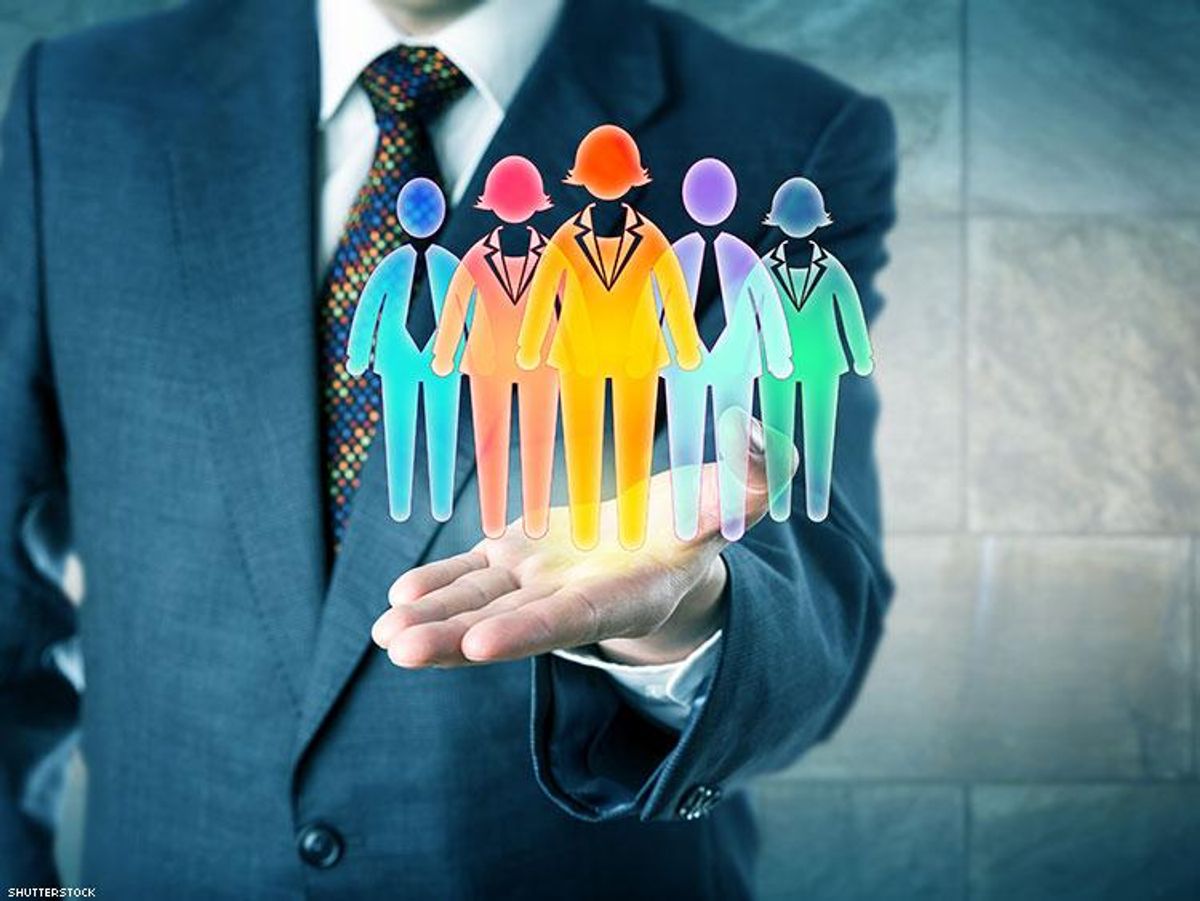In an era when the rights afforded to LGBT people are under threat, the role of companies that identify the importance of inclusivity and value the commercial benefits of a diverse workforce have an important role in society.
Take the recent and commendable response from corporations to Trump's immigration executive order, and we can see how corporate commitment to diversity can be utilised for good.
From tech to media, consumer and retail to finance, executives stood shoulder to shoulder with their diverse and multicultural workforce. An internal memo from Apple CEO Tim Cook quoted Martin Luther King Jr.,after sharing words of support and empathy. Amazon, Airbnb, and Nike voiced their opposition to the travel ban and Starbucks made perhaps the strongest statement by pledging to employ 10,000 refugees.
Trump has already rescinded the protections put in place by the Obama administration for transgender students, which originally sparked fierce debate over the scope of nondiscrimination laws. These students will now no longer have the federal government's reassurance they can access bathrooms and locker facilities corresponding to their gender identity. Now more than ever, companies must be ready to defend the hard-won progress made in recent years.
The Open for Business coalition -- which was launched in 2015 as a coalition of global companies making the case that diverse societies are better for business -- is a promising sign that firms are willing to rise to this challenge. In a report last year by the coalition, it identified the benefits of inclusivity broadly as economic opportunity and avoiding business risk, drawing together compelling evidence not only showing the economic reward of inclusivity but also proving that consumers prefer to support companies who stand up for the values they espouse.
The role that business can play in ensuring LGBT rights is really at the root of The Economist's Pride and Prejudice event. How can firms campaign for LGBT rights, protect staff in parts of the world where their sexuality is illegal, and promote an inclusive environment in the workplace?
At last year's event, we tried to make the business case for LGBT inclusion, building on the increased awareness of such issues in recent years. This year we hope to focus on intersectionality, turning policy into practice, as well as on regions of the world where progress is slow. But in addition to sustaining all-important momentum, we want to ensure that we don't retreat from recent successes.
Much has been written about the commercial sense of acquiring and maintaining diverse talent, but there are more reasons why it works to a company's advantage -- diversity of thought, for one.
Take marketing, for instance. Customers come in all shapes and sizes, and understanding what motivates a customer, what makes them respond and ultimately buy, is a task best served by a workforce that reflects the diversity of its customers.
When coming up with business plans and strategies for growth, rather than surrounding yourself with people with the same outlook as your own, you need a group of challengers with different life experiences, values, and perspectives. Avoiding the echo chamber makes the resulting ideas better and more effective.
When it comes to workplace inclusivity, people like environments where differences are celebrated and where there is no pressure, whether intended or not, to conform to a narrow understanding of what success means. Being able to bring your authentic self to work ends up being productive and liberating for everyone.
You don't need to put the rainbow flag in your logo to show your support, but there are plenty of ways for your business to ensure progress, and we need all the help that we can get.
MICHAEL BRUNT is chief marketing officer and managing director of global circulation at The Economist.

















































































